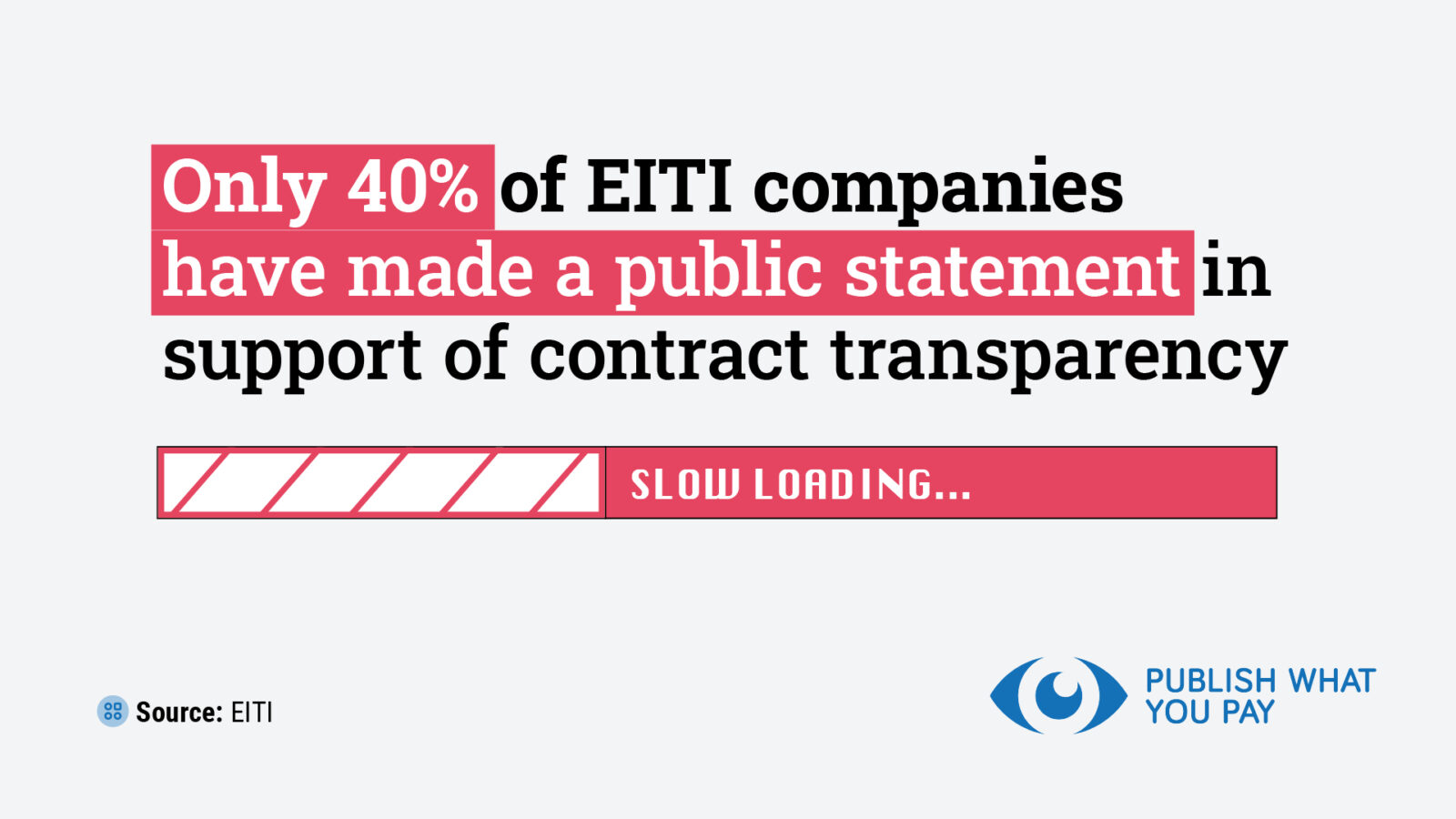
As part of the EITI 2019 Standard companies that are part of the Initiative are expected to meet a set of transparency asks (known in EITI speak as “Expectations”) linked to key areas such as contract transparency, tax, payments and beneficial ownership transparency
Last month, for the first time, the EITI released an assessment of how companies lending their support to the initiative stack up against the EITI’s expectations of supporting companies. Whilst these expectations date back to 2018, this was the first time companies were assessed against them. This is a welcome step for which the EITI should be congratulated, particularly the civil society board constituency who successfully called for the publication of the previously confidential company-by-company assessment.
Taking a closer look to the data
The data shows some areas where there is high adherence to the expectations; the disclosure of tax and payments information in EITI countries for example. In fact, many companies show that they can meet these EITI expectations across the board, which only serves to highlight further the significant number that don’t.
The gaps are glaring. Transparency of tax and payments information is core to the mission of EITI, yet of the 61 supporting companies assessed, 23% fail to report their tax and payments information in all countries of operation.
This year the EITI has put significant effort into raising awareness of the new requirement that EITI countries publish new contracts and contract amendments. It is disappointing, then, that so few EITI supporting companies have added their voice and shown support for contract transparency publicly; just 40% have.
The EITI’s expectation of supporting companies on contract transparency is a low bar; just a public statement to signal support to governments, who can sometimes be reluctant to embrace this transparency. Disclosing contracts is critical to stopping bad and unfair deals, and that’s why PWYP launched its global #DiscloseTheDeal campaign last year.
The EITI wants open and accountable extractive industries. That only happens if governments and companies act. If an EITI country fails, it can be suspended from the initiative. However, there are no repercussions for companies who fail to meet these basic expectations. Meanwhile, they reap the reputational benefits of being associated with EITI.
It is disappointing to see so many supporting companies fall short of the expectations, but it’s thoroughly concerning that some companies represented on EITI’s board – who help steer the future of the initiative – can’t even meet the mark; notably, industry heavyweights and long-time board members, Exxon and Chevron. In contrast, board members BP, Total, BHP, Equinor and Rio Tinto meet all expectations.
Who sits on the EITI board matters. Having companies represented who are truly committed to the principles of EITI builds trust in the initiative and safeguards its reputation. More importantly, it accelerates progress. We face a global emergency in the climate crisis. One that will only be averted with unprecedented international cooperation, including between governments and companies. Good governance in the oil, gas and mining industries, and the EITI, can be an important part of the solution, but only with bold leadership and commitment. In this context, can we really afford to have companies represented on the EITI board who are still struggling to meet or support standards that became commonplace years ago?
The way forward
Luckily there are solutions. The EITI civil society board members have outlined what needs to happen and the EITI board meeting next week will be a crucial point to assess progress. They called for company expectations to be strengthened with companies being regularly assessed against them, and that companies failing to comprehensively disclose tax and payments inline with the EITI Standard should not be represented on the board. The civil society representatives also set out the need for compliance standards for companies, with review, scoring, and sanctions to hold companies to an equal level of accountability as governments.
What is clear from the data released by the EITI is that we expect better from the many companies claiming to support transparency, and especially from those represented on the EITI Board helping to steer the future of the initiative.
Read the next article
Lifting the veil of secrecy on rights abuses caused by Brazil’s mining industry